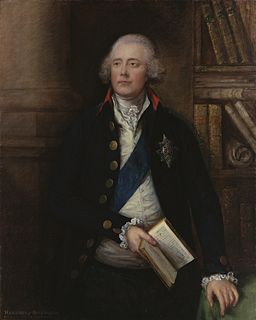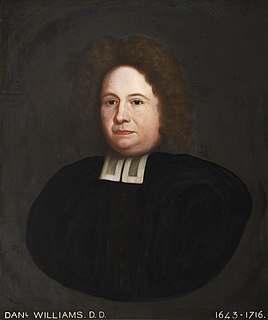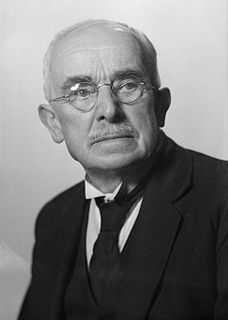Related Research Articles

George Nugent-Temple-Grenville, 1st Marquess of Buckingham, was a British statesman.

Abraham Rees was a Welsh nonconformist minister, and compiler of Rees's Cyclopædia.
John Foster (1770–1843) was an English Baptist minister and essayist.
Samuel Taggart was a Presbyterian Minister, an American politician and a U. S. Representative from Massachusetts.
The Silver Bluff Baptist Church was founded in 1750 in Beech Island, South Carolina, by several enslaved African Americans who organized under elder David George.

Daniel Williams was a British benefactor, minister and theologian, within the Presbyterian tradition, i.e. a Christian outside the Church of England. He is known largely for the legacy he left which led to the creation of Dr Williams's Library, a centre for research on English Dissenters.

William Kiffin (1616–1701), sometimes spelled William Kiffen, was a seventeenth-century English Baptist minister. He was also a successful merchant in the woollen trade.
Thomas Pakenham, 2nd Earl of Longford,, known as The Lord Longford between 1792 and 1794, was an Anglo-Irish peer.

John Kendrick Archer was a Baptist Minister, Mayor of Christchurch and member of the New Zealand Legislative Council.

Reverend Edward Adey was a Baptist minister and abolitionist.

William Huntington S.S. was an English preacher and coalheaver. He is said to have preached that "moral law" is unnecessary, a theological view known as Antinomianism. Huntington was a strict Calvinist who believed some were predestined to be saved and some were not. He was also convinced that he would be identified as a true prophet on Judgment Day. His unusual, polemical style of preaching and writing made him popular but brought conflicts with other preachers throughout his life. He founded or opened chapels throughout England, many of which survive including Bethlehem Chapel Richmond upon Thames
Roger Flexman (1708–1795) was an English Presbyterian minister, known also as a chronological and historical scholar, and published as an indexer and bibliographer.
Robert Aspland was an English Unitarian minister, editor and activist. To be distinguished from his son Robert Brook Aspland (1805-1869).
Elhanan Winchester was one of the founders of the United States General Convention of Universalists, later the Universalist Church of America.
Samuel Palmer (1741–1813) was an English nonconformist minister, known as a biographer.

The Mackays of Aberach also known as the Clan Aberach are a Scottish family and a branch of the ancient Clan Mackay of the Scottish Highlands. They were the senior cadet branch of the Clan Mackay and were seated at Achness, in Strathnaver, which is in modern-day Sutherland. In Scottish Gaelic they are known as the Sleaght-ean Aberigh.

John Ryland (1753–1825) was an English Baptist minister and religious writer. He was a founder and for ten years the secretary of the Baptist Missionary Society.

Joseph Kinghorn (1766–1832) was an English particular Baptist and a life-long minister of St. Mary's Baptist Church in Norwich.

Abraham Booth was an English dissenting minister and author, known as a Baptist apologetical writer.

The Rev. Daniel Davies, D. D. was a Welsh Baptist preacher, also known as "Y Dyn Dall".
References
![]()
Gunn, James (1998), The Forebears and Descendants of Ingram Gunn (1737–1800) of Wick